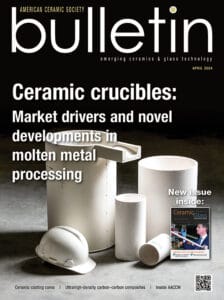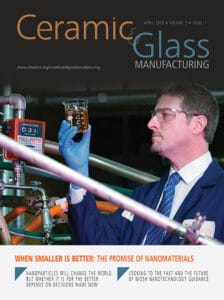Complex, disordered electroceramics – such as relaxors or superparaelectrics – are finding increasing application in fields like energy harvesting and storage, electronics, telecommunications, sensors and actuators. In such materials, the role of differently charged substituents, their distribution in the lattice, and the arrangement of phases or of polar order/disorder on multiple length scale needs to be uncovered to enable advanced property tuning. Recent contributions in the field of materials genomics, for example with the use of high-throughput density functional theory and artificial intelligence-based optimization, have shown their strength in uncovering new or overseen structure-property relationships, and in designing new materials with improved functionalities.
This symposium targets the use of data-driven methods (along with experiments) to rapidly uncover the structure-property relationships in complex, disordered solids, including (but not limited to) ceramic relaxors and superparaelectrics, nanostructured metallic oxides, and semiconductors. Specifically, the interplay of local structure, chemistry, configurational entropy, ergodic-nonergodic behavior and instabilities induced by substitution and electric polarization on multiple length scales – and how it impacts macroscopic properties relevant for applications (energy storage, electromechanical and electrocaloric applications, among others) – is a topic we look for. Importantly, we explicitly welcome contributions involving advanced nano- to micro-scale characterization methods in synergy with multiscale modeling, providing key insights to better understanding the structure-property relationships in complex and disordered solids.
Proposed sessions
- Theoretical foundations of data-driven models and atomistic simulations in complex electroceramics
- Accelerated search of complex electroceramics with enhanced properties
- Local structure and properties of complex electroceramics
- Model-supported advanced nano- and microscale characterization methods
- Application of data-driven models and characterization for electroceramics in real-world applications
Symposium organizers
- Marco Deluca, Materials Center Leoben Forschung GmbH, Austria, marco.deluca@mcl.at
- Prasanna V. Balachandran, University of Virginia, USA, pvb5e@virginia.edu
- Antonio Feteira, Sheffield Hallam University, United Kingdom, A.Feteira@shu.ac.uk
- Jiri Hlinka, Institute of Physics, Academy of Sciences of the Czech Republic, Czech Republic, hlinka@fzu.cz
Subscribe to Ceramic Tech Today

Don’t miss the latest ceramic and glass materials news. Receive the CTT newsletter to your email three times a week by subscribing at this link.
Subscribe to Ceramic & Glass Manufacturing Weekly

Don’t miss the latest ceramic and glass business news. Receive the C&GM Weekly newsletter to your email every Monday by subscribing at this link.


